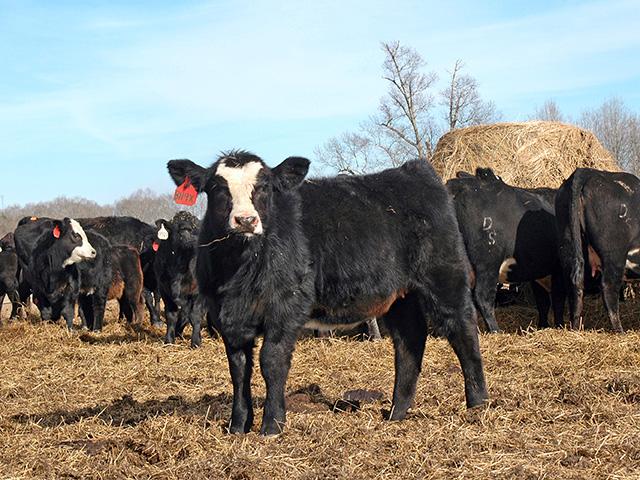Ask the Vet
Deworming Doesn't Solve Everything
READER QUESTION:
I have a small group of calves weaned about two months ago. They've been wormed and vaccinated and are on a little hay and feed. One of them is losing weight, and it has diarrhea. The rest seem to be fine. What do I need to do?
DR. KEN MCMILLAN'S ANSWER:
If you have a herd veterinarian, give him or her a call and discuss this with them. If you don't have a herd veterinarian, you need to get one who can come out and look over your cattle and your operation.
P[L1] D[0x0] M[300x250] OOP[F] ADUNIT[] T[]
Lately, I've had similar cases. Owners brought in stool samples for us to check, and we found the calves were heavily infected with worms, or worms and coccidia. This is a simple, economical test that I think is tremendously underutilized.
There are many reasons calves that have been dewormed can still have worms. It can be as simple as a calf being missed when deworming. Also, we see more resistance to some dewormers today, especially some of the generic pour-ons. Many times, when calves are weaned, they are turned onto the same lot other calves used in the recent past, and that environment can be heavily contaminated with parasite eggs and oocytes. These areas are often muddy. In addition, feed bunks, troughs, or pans can be contaminated with mud and manure. Clean pastures or lots and improved overall sanitation can really help prevent reinfections.
Also, nutrition is very important. As I've noted in previous columns, calves must have a ration that meets their energy, protein and mineral needs. Healthy cattle are much more resistant to all diseases.
Another disease that should be considered in cases like this is persistent infection with bovine virus diarrhea (BVD-PI). These calves are infected during pregnancy and accept the virus as "normal." Many of these calves are smaller and sickly, but not always. All BVD-PI calves shed massive numbers of viruses continuously, so they are a threat to other calves in the herd. This condition can be controlled with testing and vaccinations.
Having considered all of this, I go back to what I said at the beginning. The only way to know for sure what the problem is, is by getting a veterinarian involved. Find out what is happening in your herd, and then ask for help to develop an ongoing herd health program that will keep your operation and your animals healthy and profitable.
**
Editor's Note: Please contact your veterinarian with questions pertaining to the health of your herd or other animals. Every operation is unique, and the information in this column does not pertain to all situations. This is not intended as medical advice but is purely for informational purposes.
Write Dr. Ken McMillan at Ask the Vet, 2204 Lakeshore Dr., Suite 415, Birmingham, AL 35209, or email vet@progressivefarmer.com.
(c) Copyright 2023 DTN, LLC. All rights reserved.





